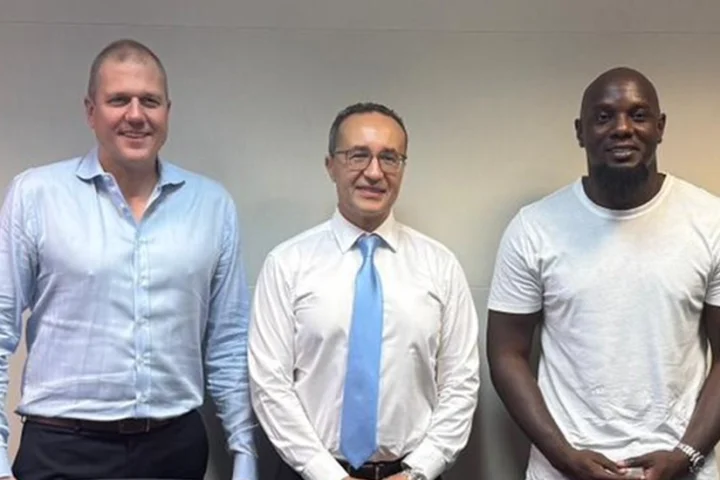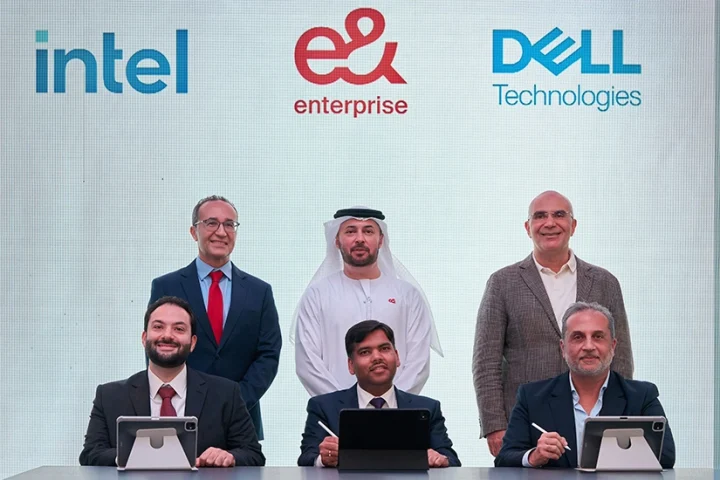With over three decades at Intel, Maurits Tichelman has helped shape the company’s partner strategy across continents. Now serving as VP and GM of the EMEA Partner Sales Organisation, he shares how Intel is adapting its partner model—from outcome-based MDFs to deeper ISV collaborations—and why local expertise is more essential than ever.
You’ve been with Intel since the 1990s. Can you take us through your career journey?
I’ve been with Intel since the early days, when we really saw the CPU boom take off across the industry. I’ve always loved technology, and Intel has always been at the forefront of innovation. I started out as a Sales Engineer, supporting the field sales team by working on technical specs and problem-solving from behind the desk. That was in the Netherlands.
In 1997, I moved to the UK and started our channel business for EMEA. I set up the reseller channel and led that effort until 2001. After that, I moved back to the Netherlands and served as Country Manager for a few years. Then I took on the role of EMEA leader for the entire reseller channel, which I did for about eight years.
After that, I moved to the U.S., where I managed the worldwide channel organization for around five years. Then I returned to the region and took on the EMEA territory—everything outside the UK, Germany, and France.
So here we are—35 years later—and it’s been quite a ride.
Intel has announced quite a few changes to the partner program recently—increased partner funding, and updates to the MDF model. We’re also seeing changes in the number of authorized distributors. Can you walk us through these changes?
When you look at a company like Intel and the breadth of technology we’re offering—technology that’s used everywhere, in countless ways—it becomes clear that our local partners are often the ones who best understand what customers need.
Our goal is to stay as close to the customer as possible. But as a global organization, we also need to scale effectively. That’s why working closely with local partners is essential. They bring that regional insight and customer intimacy. For example, the implementation required in the UAE could be entirely different from what’s needed in Germany or the United States.
I think Intel has done a great job in building a strong partner ecosystem. Our Intel Partner Alliance program is a key enabler—it allows us to engage directly with partners across the globe. Over the years, we’ve also begun segmenting the program more effectively.
The original partner program was primarily focused on PC builders—partners who bought processors and needed technical support to access the latest technologies and build products. But as our portfolio and the market evolved, so did our approach.
Today, we’re not just thinking about hardware—we’re focused on complete solutions. That means the software angle has become significantly more important, and we’re deepening our collaboration with system integrators.
Here in the region, we’re working closely with key strategic partners like Celebal and Alpha Data. These partners bring valuable local knowledge and strong customer engagement. That local touch allows us to deliver the right level of support and ultimately drive better outcomes for our customers.
Intel has moved to an outcome-based MDF model. How has that transition been, and what’s the feedback from the partner community?
I think, in general, the partners are excited. When you develop a program like this and provide funding, there’s a process involved to ensure you collect all the right information from the organization—so we’re funding the right activities. That process can be time-consuming for both our customers and our internal teams.
That’s why we’re trying to make it simpler and easier to do business with us. The focus now is: What are you trying to achieve? Are we aligned on the goals of the initiative? That’s what we’re basing our investment decisions on—clear outcomes.
Looking at your partner program, it seems distributors now have an even more significant role in your go-to-market strategy. How do you ensure they continue to play that strategic role?
Distributors have always been a strategic part of how we develop our business. One thing we all learned during the supply chain challenges is just how critical a robust logistical operation is. Our dependency on distribution—especially for execution and reach—is very high.
Here in the region, we stay very close to our distribution partners. We’re not relying on a single large distributor—we’re evaluating regional needs and what our end customers require in terms of service and responsiveness. That’s why, in some areas, we have more distributors than our competitors.
Right now, we believe our distribution setup is in good shape. In fact, we just announced a new leader for our EMEA distribution organization, who will be based in Dubai.
You lead the partner sales organization for EMEA—a very diverse region. Are partner expectations very different across areas like the Middle East, Africa, and Europe?
Absolutely. That diversity is one of our greatest assets. With such a wide range of customer needs and market maturity, we’ve been able to succeed in both mature and emerging markets.
I wouldn’t call the UAE an “emerging market” anymore—it’s probably one of the most exciting hotspots for new technology today. But yes, each region brings its own dynamics. What’s needed in parts of Africa might differ from what’s needed in the Middle East, or in countries with more traditional manufacturing industries.
This diversity gives us incredible insights into how technology is used globally. It helps us understand what our customers need and which partners we should work with. That’s also why our partner base is so diverse—we want to ensure that, at the end of the chain, when a customer buys a solution or product, they get the right Intel technology, delivered with local expertise and relevance.
Partners—whether they’re in the Middle East, or Africa—all have one thing top of mind: profitability. How are you helping contribute to their bottom line and ensuring they can sustain healthy margins while working with Intel?
While we’re not directly in control of partner margins, what we can do is create the right conditions for profitability.
First, we focus on delivering innovative products that allow our partners to differentiate themselves and lead technology transformation in their respective regions. Innovation creates opportunity—and that’s where partners can stand out.
We also continually develop programs to support them—whether it’s through marketing development funds, technical assistance, or engineering support. Intel isn’t just about hardware anymore. The software ecosystem and the knowledge surrounding it are just as critical.
One of Intel’s major differentiators is the scale and strength of our ecosystem. It allows us to help partners connect the dots—across hardware, software, and services. For example, with AI PCs, we’ve collaborated with over 100 ISVs, developing more than 300 AI-optimized applications. We’re giving partners access to those tools and software benefits, which are incredibly valuable.
This helps them better understand customer needs, segment their offerings, and deliver added value—especially when it comes to AI-driven use cases.
So overall, it’s not just about providing cutting-edge technology. It’s about enabling our partners to succeed within a broader ecosystem—so they can remain competitive, profitable, and aligned with where the market is headed.

























